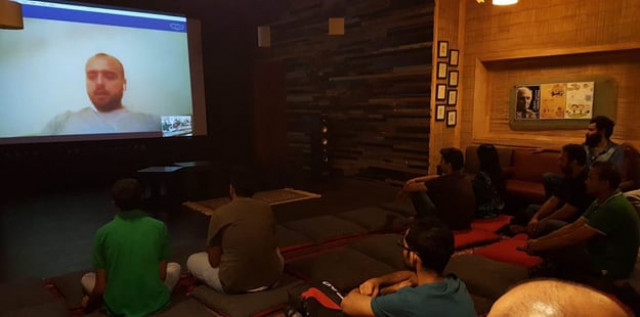Cutting-edge: ‘Innovative minds stand out from the rest’
Educationists stress the need for a new education system

Documentary Screening of "Most likely to succeed" PHOTO: Olomopolo Media
Directed by Greg Whitely and produced by Ted Dintersmith, the film is an attempt to find out if the education system is outdated. It also analyses its impact on the US economy.
Although the documentary focuses on American schools, it has been well received across the world for the universality of its subject.
The documentary addresses questions like: Is the education system no longer providing what it is supposed to; why has it fallen out of place; and what are reasons for its downfall.
The film shows several American educationists sharing their views and decrypting the issue at hand.
Dintersmith said the idea for the documentary came to his mind when he would sit through his job interviewing people with excellent grades but less impressive on innovation front. Dintersmith said there would be more unemployment “if we don’t have kids coming out of school being innovative”.
Linda Darling-Hammond, a professor of education at the Stanford Graduate School of Education, says in the documentary, “The kind of work we do in our world and the kind of people who succeed in various job sets are those who are resourceful and resilient, who keep at it and have a learning growth mindset.”
“That’s what actually builds grit, perseverance and resourcefulness and that’s what allows people to be successful when getting out of the artificial system called school,” Hammond says.
Tony Wagner from Harvard Innovation Lab says the primary focus of the education system has been to acquire content-based knowledge only. “The idea is if you know more stuff, you are going to be better off. [It is believed that] the only source to acquire knowledge is the teacher… but you don’t have to do that anymore. The content these days is ubiquitous. It is present on internet and is growing exponentially and changing constantly,” Wanger says.
Jed Silverstein, English philosophy teacher in New York, says, “If we want to compete with the world, we need to produce citizens capable of innovative thinking… and not just ones capable of industrial production or assembling iPads.”
Silverstein stresses the need for producing people who can do well in an innovation-based economy system and “where creativity and anti- authoritarianism is celebrated”.
“I think we are going to have to move towards a system of education that is all about skills and much less about the retention of knowledge,” Silverstein says.
Laszlo Bock, a senior Peoples Operation VP at Google, says, “We grind out learning machines in our educational system and teach them not to learn but to memorise things. We are taught to be good at memorising what a teacher or a manager wants us to.”
Published in The Express Tribune, May 24th, 2016.



















COMMENTS
Comments are moderated and generally will be posted if they are on-topic and not abusive.
For more information, please see our Comments FAQ